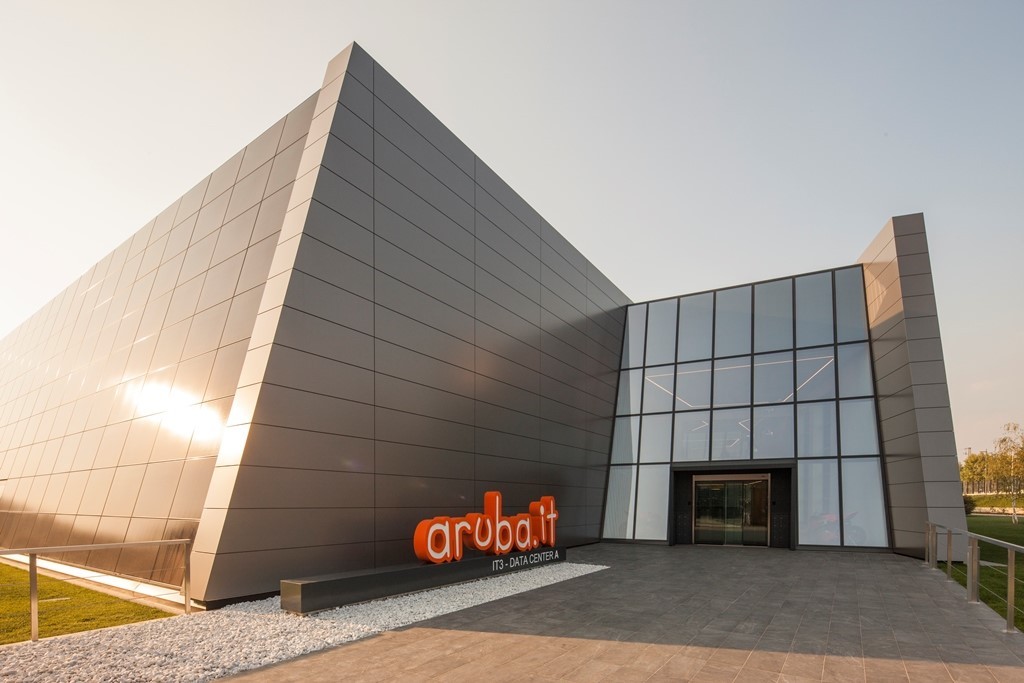Aruba announces a new collaboration with the Department of Information Engineering of the University of Pisa.
With mounting economic and environmental pressures, and regulations like the European Commission’s Energy Efficiency Directive (EED) setting the bar, energy efficiency is rapidly becoming a cornerstone of effective service design.
It is with these priorities in mind that Aruba and the Department of Information Engineering of the University of Pisa reached this two-year framework agreement, in which an experimental project of machine learning and AI applied to cloud computing was developed. The project aims to develop an integrated solution for load management on cloud platforms, based on the prediction of the resources used by virtual machines (VMs). Predictions will be based on the analysis of historical data relating to VMs and, through the development of specific algorithms, will aim to optimise the energy consumption of hardware, while guaranteeing the requirements of VM users.
Since cloud environments are generally used dynamically and flexibly, their cost is influenced by energy consumption. Being able to optimise the use of these resources - for example, by predictively modulating the amount of hardware as per the specific needs of customers - can reduce consumption when not needed and as a result, offer the service at a better cost.
Two different algorithms will be developed through the joint project:
● A dynamic VM profiling algorithm to outline certain profiles based on the resources used historically.
● An algorithm for managing VMs that exploits profiles to manage their execution on the different hardware that make up the cloud platform, in order to optimise energy consumption, while guaranteeing performance.
The project, therefore, will make it possible to develop an integrated solution for virtual machine management on a cloud platform based on load prediction, and to implement a proof-of-concept based on OpenStack for field experimentation through application cases. In detail, the main benefits of the project include:
· The possibility of being able to move the load between OpenStack nodes on a predictive and historical basis to optimise the use of resources on the nodes.
· The possibility of guaranteeing adequate resources for client requests, optimising the use of servers dedicated to the service, without creating artificial limitations.
· The possibility of having stand-by computation nodes in OpenStack clusters to be activated according to load distribution needs.
"We are proud to announce our new collaboration with a prestigious institute such as the University of Pisa, a significant step towards innovation in the practical application of machine learning within the cloud ecosystem,” commented Daniele Migliorini, Head of Engineering at Aruba. “This partnership reflects our ongoing commitment to technology collaboration with Italian academic institutions of excellence, in order to offer cutting-edge solutions and meet the rapidly evolving needs of the market. We are confident that the synergy between our experience in the sector and the expertise of the University of Pisa will result in solutions that will shape the future of the cloud and encourage benefits that can be derived from artificial intelligence, optimising the use of energy in the data centre sector with a view to long-term sustainability."
“Our department has a long tradition of dialogue and work alongside companies,” comments the Director of the Department of Information Engineering Andrea Caiti. “We have several active laboratories dedicated to the research of
4.0 and 5.0, which have now acquired not only local, but also national and international relevance. We receive numerous requests for collaboration from businesses for training courses, co-design of solutions, use of the cutting-edge tools in our laboratories for product studies, and to set up joint research laboratories. This openness to collaboration has enabled us to contribute to effectively bridging the gap that has always existed between research and enterprise, literally bringing two worlds that usually don’t speak to each other to the same table."
"The opportunity to collaborate with a large company like Aruba," adds the scientific head of the collaboration, Carlo Vallati, "allows our department to work on frontier topics in the area of cloud computing technologies. This gives us the opportunity to work on innovative solutions, with a potentially significant impact on areas such as energy efficiency and environmental sustainability, which are crucial in the development of the cloud of the future."




